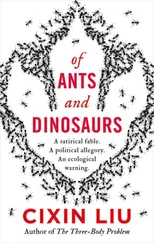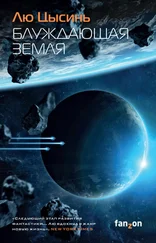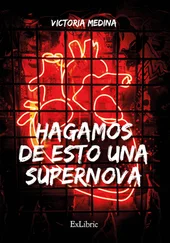As the children stepped through the entrance, they felt as if something inseparable had been left on the ground behind them, and when they turned around and saw the grass fluttering in a light breeze as if beckoning them back, at last their self-control gave way and their tears came. The interior of the military cargo plane was cavernous, equipped with long rows of seats and illuminated only by a dim fluorescent bulb high overhead. There were no windows; the children were now cut off from their land.
Their tears flowed freely once they were in their seats, and some jumped up and flung themselves toward the entrance, which was now closed and had only a single small window to crowd round. It was some time before the American cabin crew could get them seated and buckled in. Half an hour later, the engines rumbled to life and the plane began taxiing. The ground beneath sent subtle tremors up through the wheels, like a mother’s hand gently patting her children on the back. Then with a slight bump the vibrations ceased, and the last thread connecting the children to their motherland was severed. Some cried out “Mama!” as others whimpered. Someone tugged at Li Zhiping’s sleeve. A little girl sitting next to him stealthily passed a few blades of grass into his hands that she must have plucked from the tarmac during the chaos just before. Their eyes locked for a moment, and he started to cry again.
That was how Li Zhiping came to leave his ancestral land carrying a clump of grass with him. It remained with him throughout his peripatetic life in North America, and on innumerable nights he would wake up from dreaming about his homeland and look at it, its long-dried-out form plated with a layer of living green by the light of the Rose Nebula. On those occasions he would feel a rush of warmth surge through his numb body, and under the tender, watchful gaze of his mom and dad from the beyond, his weary heart would start to sing the songs of his childhood….
Such situations were commonplace throughout the first round of territory exchange. Whenever Chinese children sought to carry with them the most insignificant objects of their homeland—grasses, leaves, flowers, or even rocks and dirt—the American children reacted with horror, and submitted repeated requests to hold discussions aimed at preventing migrants from taking any mementos with them from the land. Their stated motivation was disease control, and most Chinese children believed them, apart from a few who understood the American children’s true reason.
The first two areas up for exchange were vacated on June 7, and prior to the arrival of the new immigrants, the areas held handover ceremonies.
The Shaanxi handover ceremony was not held in the provincial capital but outside a small village. All around us were loess hills and gullies edged with the terraced fields left by our ancestors’ tilling. The hills extended off into the distance as far as the horizon. This deep and benevolent soil had nurtured untold Chinese generations across the ages, but now the last group of children to be brought up here were bidding it farewell.
Ten children from the handover commission, five Chinese and five Americans, took part in the ceremony. It was a simple affair. We took down our flag, and then the American children raised theirs, and then both sides signed the agreement. The American kids were all dressed as cowboys, evidently taking this as their new Wild West.
The ceremony lasted ten minutes. As my hands shook, I lowered our flag and clasped it to my chest. The five of us were foreigners now. We said nothing, numbed from the exhausting work during the migration. It would take time to fully understand it all. The vast yellow land was like my grandfather’s weathered face, and now that giant face that stretched to the horizon was staring silently up at the heavens. There was not a whisper of sound. All of the many things the earth may have wanted to tell us were buried beneath it forever, and in silence it watched us depart.
Not far off a Chinese helicopter was waiting to carry us to Gansu, the second province scheduled for exchange, and away from this land that was no longer ours. I had a sudden impulse and asked the American children if we could be allowed to walk there. The little cowboys were shocked: “It’s over two hundred kilometers away!” But in the end they agreed, issued us special travel permits, and wished us good luck.
Then a puppy came running over from the now-uninhabited village, nipping incessantly at our legs. I bent down and took him in my arms. The helicopter flew off with an empty cabin, its thunder receding into the distance. The five of us, plus a puppy born on this very land, began our arduous journey. We couldn’t say why. Was it longing? Or penance? We just felt that so long as our feet still were on this soil, no matter how hungry or thirsty or tired we got, our spirits still had sustenance….
From
A Chronicle of the Great Migration, China Edition, vol. 6. China-US Territory Exchange Commission, New Shanghai, SE 7.
The handover ceremony in South Dakota took place beneath Mount Rushmore. Giant faces of four of the greatest presidents in US history watched in silence as a red five-star flag was raised; later, people would remember a different set of expressions on those faces, but that wasn’t the focus of our attention at the time.
Unlike the chilly loneliness on the other side of the world, here several hundred American kids watched the ceremony, and a military band played the two national anthems. Once the Chinese children had raised their flag, representatives of the two sides came to sign the agreement. The Chinese representative signed, and then it was time for George Steven, governor of South Dakota. As several hundred kids watched intently, he ambled over to the signing table, slung a backpack off his shoulder, and took from it a stack of pens, fountain pens and ballpoints both, over a hundred in all. Then he began signing, using each pen for only a dot or two before setting it aside and picking up another. He signed for fifteen minutes, and it was only when the crowd’s protests grew too loud that he straightened up from the table. He had signed with nearly one hundred pens, and apparently was somewhat annoyed that his parents hadn’t seen fit to give him a longer name. Then he launched into a loud auction of the pens, with an opening bid of $500 each. As I watched the price skyrocket, I was seized with anxiety, and in a flash I thought of the signing table! But I was too slow; a few other kids had already rushed over to dismember it, and in the blink of an eye the poor table had been reduced to splinters of wood in the hands of dozens of kids. I glanced down at the flag in my own hands, but it did not belong to me. Looking about me for something else, I had an idea. I turned and raced into Carvers Café, and as luck would have it in a side room I found the tool I wanted: a saw. By the time I came back out, the bidding had climbed above $5,000 on George Steven’s last few pens! Two flagpoles towered before me; on one fluttered the brilliant red Chinese flag, which clearly was untouchable. But the other, which once held the Stars and Stripes, was empty. I hurried over and started sawing, and in a matter of seconds I had cut it through. As it fell, a crowd of kids ran over hoping to take it for themselves, and then fought to break it into pieces, no matter that the wood was too thick to snap. My saw managed to get me two segments, each about a meter long, but I was too tired to fight for any more. But two was enough! I sold the saw for a couple thousand to another boy, who immediately joined the pack tussling over the flagpole like they were in some ferocious football game. I auctioned off one of my pieces for $45,000 but kept the other to sell later for a higher price. Then the army band members starting selling off their instruments, and it was havoc for a while as things got out of control. Some kids who hadn’t claimed anything, and who had no money for the auctions, began crowding around the Chinese flagpole, and it was only when soldiers with machine guns from the Chinese Navy vowed to defend the flag and the territory it stood on with their lives that the kids finally left in dejection. Later, everyone regretted auctioning things off on-site, since memorabilia from the first territorial handover quickly rose in value tenfold. Luckily I held on to one piece of flagpole; I used it later for seed capital to open a transport company in Xinjiang.
Читать дальше
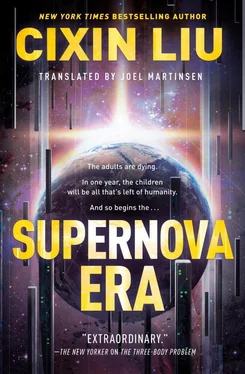
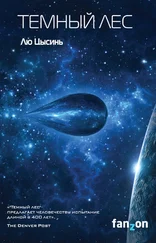




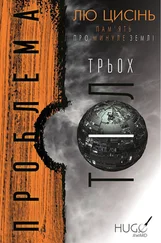
![Лю Цысинь - Эпоха сверхновой [litres]](/books/393110/lyu-cysin-epoha-sverhnovoj-litres-thumb.webp)
